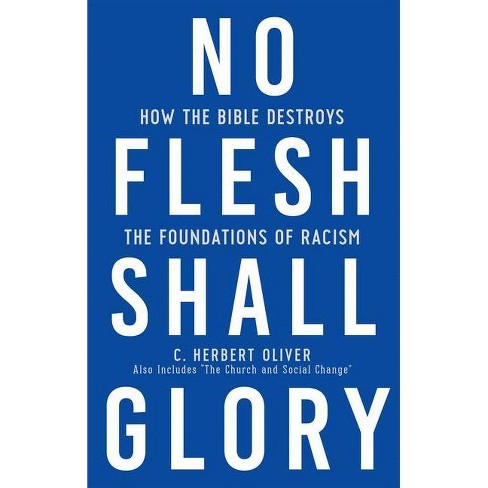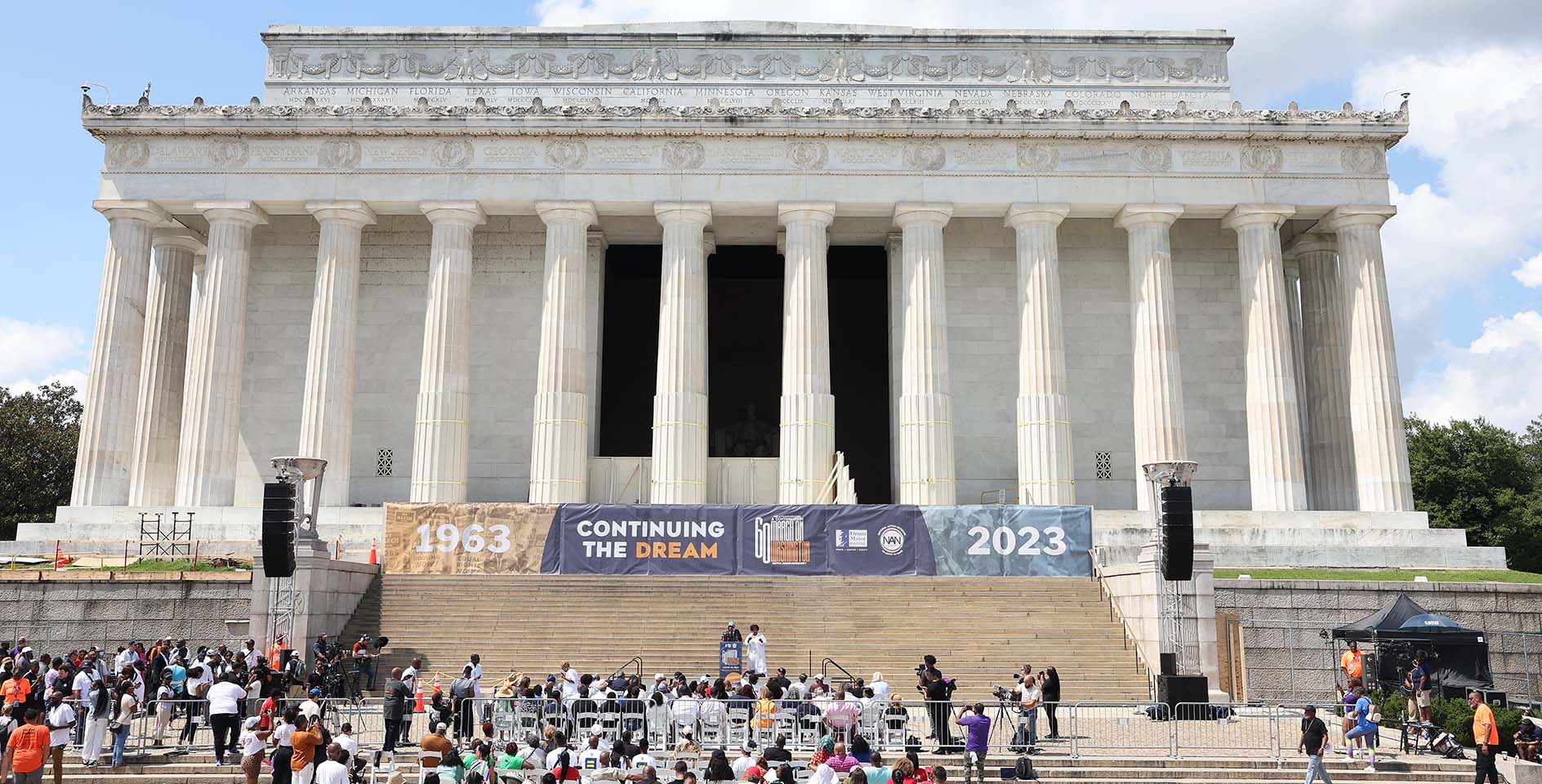In No Flesh Shall Glory: How the Bible Destroys the Foundations of Racism, civil rights leader Rev. C. Herbert Oliver provides sound biblical exposition of the foundational biblical truths concerning race, racism, and segregation and denounces historic Christian justifications for racism and segregation. This revised edition includes his 1964 essay, “The Church and Social Change,” addressing the Church’s role in responding to sinful cultural norms. Both the original text and the added essay have much to offer contemporary efforts to pursue racial unity within the Church.
Oliver grew up in the segregated city of Birmingham, Alabama. He dedicated his life to implementing the gospel of Christ to confront the intense cultural conflicts within his city, state, and nation. Throughout this book, he discusses a wide variety of topics including: the unity of the human race; God’s creativity in diversity; God’s purpose in diversity; different biblical interpretations of race; a biblical anthropology of humanity; and the practical Christian response to setbacks of racial reconciliation. Oliver’s work remains a significant landmark within the civil rights movement as well as an empowering encouragement to the followers of Christ in the 21st century.
All men are created equal
Throughout his book, Oliver offers many themes that challenge common beliefs regarding race relations, especially in the context of the 1950s and 1960s South in which he was writing. The first half of the book focuses on the biblical, historical, and anthropological realities regarding race and culture. In the second half, Oliver provides practical applications for the Church on how to approach the difficult issues of racism and segregation from a biblical point of view. This updated edition provides readers within a modern context a history of race relations as well as a reminder of how that application of biblical truth is needed today.
Oliver states that the foundation for discourse within the Church regarding race relations must be rooted in God’s design and heart for human existence. Through the numerous mentions of nations, people groups, and genealogies, the Bible remains consistent to its core that all of humanity is equal, being made in God’s image and likeness (Gen. 1:27). From Genesis to Revelation, God exemplifies that he remains the God of all peoples, nations, and backgrounds.
Yet, this truth by no means ignores the wide diversity of God’s creation. Although it is true that man is unified as one distinct race, it is also true that God created humanity containing a multitude of differences. In this, as Oliver explains, God demonstrates his love for creative action by, “refusing to create any two things exactly identical” (18). These differences exist to form a harmony of humanity and to serve unique purposes within God’s overarching meta-narrative of creation.
Oliver raises questions of concern over the popular 1950s term, “racial solidarity.” Racial solidarity ultimately refers to “the cohesion of a group around a few physical characteristics such as skin color, hair texture, and facial features” (19). Of the numerous unique traits designed and instituted by our perfectly creative God, it is concerning that history seems to value the pigment of one’s skin as the most defining characteristic. It is shallow and cruel to value something so narrow in determining the worth of an individual; especially an individual designed in the image of God. Instead, Oliver calls upon the church to focus on what he calls “Christian solidarity” to replace the evil notion of racial solidarity. As Oliver explains, the worldly presuppositions of racial solidarity do indeed value unity. However, it values a unity that is based upon sinful and divisive notions that essentially serve to divide rather than unify the culture.
Oliver then addresses multiple false biblical claims that were often used to justify segregationist behavior. These popular segregationist justifications use Genesis 9:24-27 and the so-called, “mark of Ham,” as well as Acts 17:26 and the reference to God as the original segregationist. He provides a thorough historical analysis of biblical anthropology in tracing all existing races from Adam and Noah, to the descendants Shem, Ham, and Japheth, and to all of the races of the world. In this section, Oliver shows that claims of biblical segregation or racial preference are not rooted in proper interpretations of the text. They are the result of individuals using misreadings to justify their own racial bias. This abuse of the text and using it as a tool should be called what it is: the work of Satan who seeks to divide and destroy what God has called good.
Oliver calls the Church to be seen as the people who value the character and uniqueness of every individual regardless of their race or ethnicity. Oliver states, “The Christian historian must be guided by a higher motive than race. He must see the earth as the Lord’s and the fullness thereof” (45). God’s calling of salvation focuses not on the tribe, tongue, or nation of man. It certainly does not focus on the pigment of skin. Such understanding is a shallow view of God’s creation.
Why is this relevant today?
No Flesh Shall Glory was a challenge to the Church during a time of severe segregation and egregious racism in the 1960s. Olivers discusses particular racial issues that were not widely accepted by evangelicals such as segregation, interracial marriage, the Bible’s embrace of racial diversity, and the association of different races. At the time of publication, these were contentious issues, but Oliver wisely uses the Word of God to approach each of these topics and challenges the Church to do so along the way.
Why is this relevant today? Children from different races are legally allowed to attend the same school, men and women of different races are legally allowed to marry, and there are numerous laws making discrimination illegal. Oliver’s work extends far beyond the racial injustice of his day. This work presents a responsibility that the Church should hold far into the future. While racism looks different, tragically, it still exists today.
There are also new issues which are attacks on the dignity of individuals within our culture such as abortion and sexual violence. The principle of Christian responsibility to bring the full weight of Scripture to bear on the moral issues of the day that Oliver lays out before us applies to all of these issues, especially the idea that the Church ought to be the one pushing for a change in culture, not the other way around.
The call of this book for the church to meet the problem of racial prejudice remains relevant today. Racism still exists, therefore, the same call to action that Oliver made to the Church in the civil rights era still remains true today. Our current moment calls for the Church to lead on the question of racial justice and reconciliation from our conviction that Christ enables a unity that crosses racial boundaries. The Church is an institution uniquely capable of doing this work, not the wider culture. Christians must esteem the worth and dignity of every boy and girl, man and woman, no matter our outward distinctions. And we must extend the call of reconciliation to them—reconciliation to God through Jesus and to one another.








